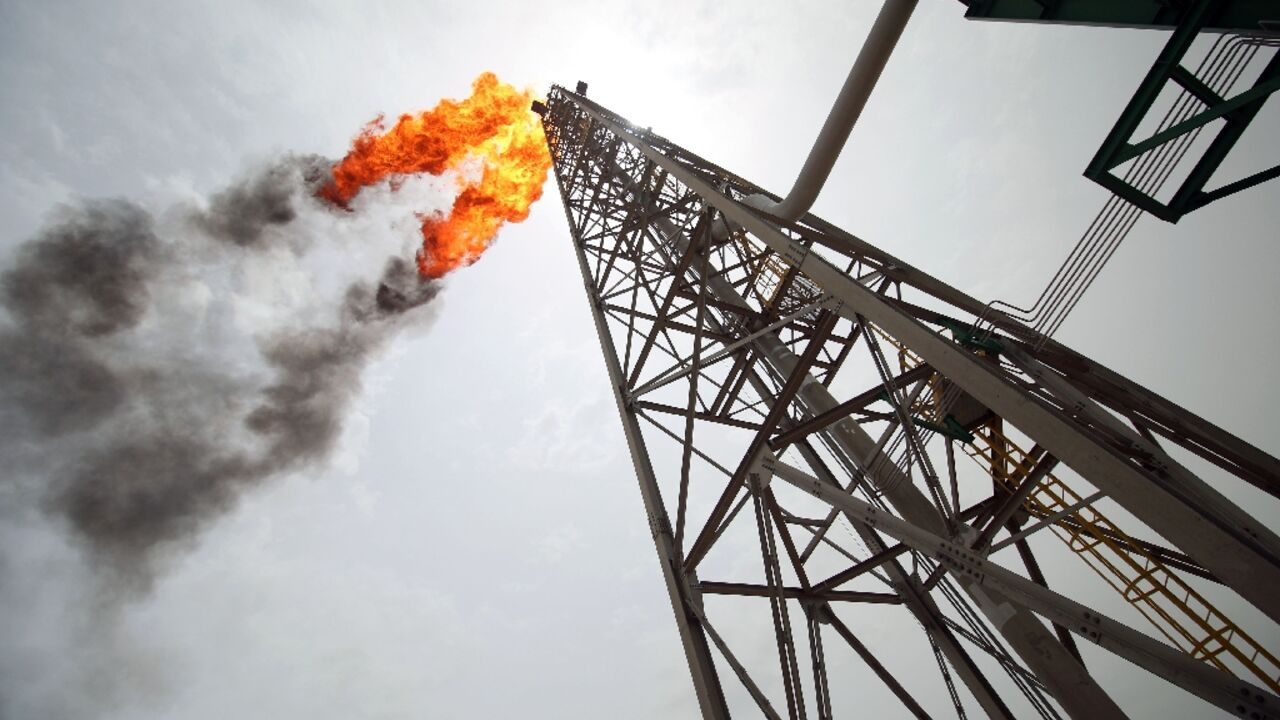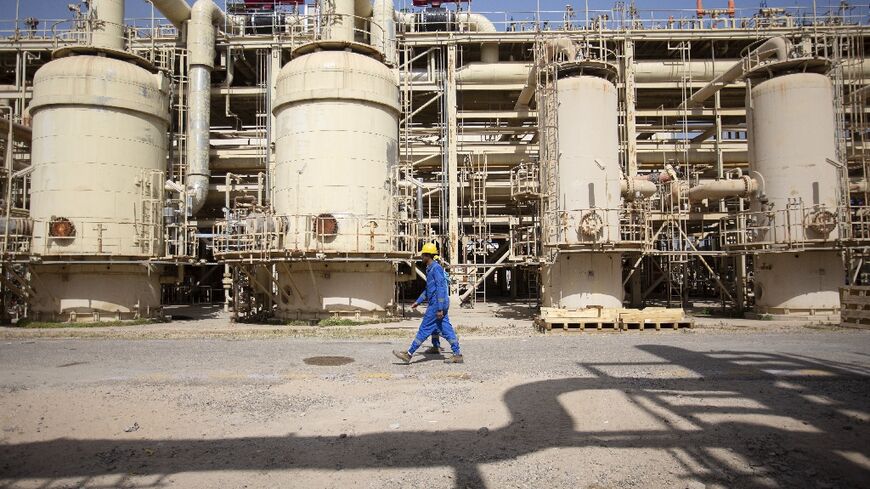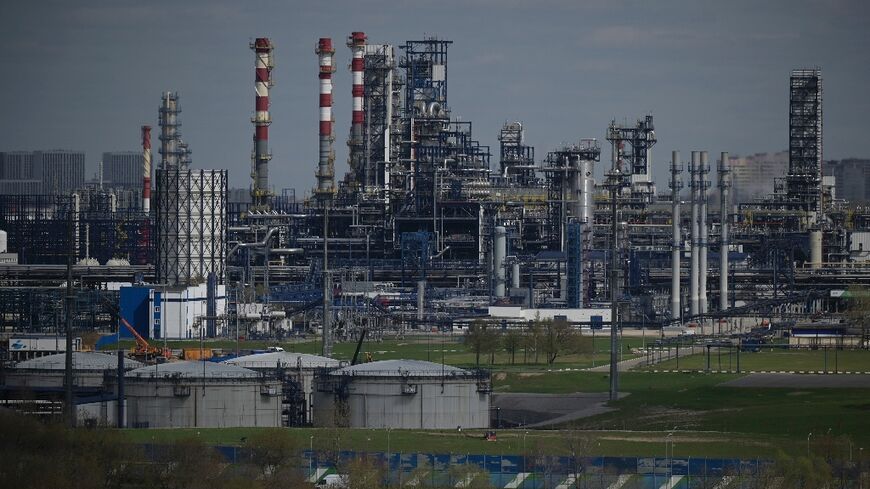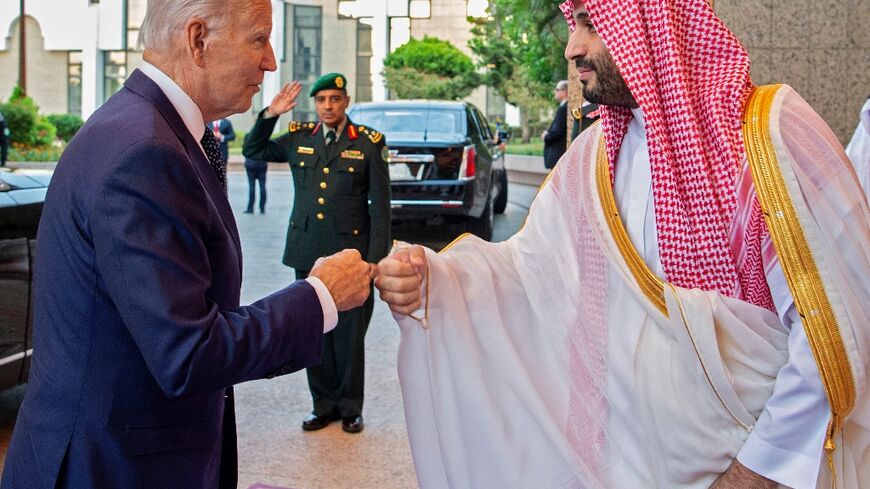OPEC+ sticks to modest oil output increase despite Western pressure

The OPEC group of oil producing countries and its Russia-led allies agreed on another modest oil output increase on Thursday, ignoring Western pressure to significantly boost production as the Ukraine conflict has rocked prices.
While OPEC refused to budge, the United States said it would tap its strategic stockpile by a record amount in a bid to cool soaring prices.
The 13 members of the Saudi-led Organization of the Petroleum Exporting Countries and 10 countries spearheaded by Russia backed an increase of 432,000 barrels per day in May, marginally higher than in previous months.
The group, known as OPEC+, said in a statement following a ministerial meeting that the "continuing oil market fundamentals and the consensus on the outlook pointed to a well-balanced market".
It added that the "current volatility is not caused by fundamentals, but by ongoing geopolitical developments."
But Capital Economics, a research firm, questioned whether the group would be able to meet the target.
"We doubt they will," said Edward Gardner, the firm's commodities economist.
"Production in Russia, which has the same quota as Saudi Arabia, is more likely to decrease than increase this year due to Western sanctions reducing demand for its exports," Gardner said.
He also noted that OPEC+ was already struggling to meet its quotas before the war.
The United States has urged OPEC+, as the alliance is known, to boost production as high energy prices have contributed to soaring inflation across the world, which has threatened to severely derail the recovery from the Covid pandemic.
Crude prices have spiked over fears of a major supply shortfall after Moscow invaded Ukraine on February 24. Russia is the world's second biggest exporter of oil after Saudi Arabia.
The international benchmark contract, Brent North Sea crude, flirted with a record high in early March as it soared to almost $140 per barrel.
It has retreated since then on hopes that Moscow and Kyiv could agree on a ceasefire, which would ease concerns over Russian supplies. Covid lockdowns in China have also weighed on prices as the country is the world's top crude consumer.
Oil prices tumbled again on Thursday -- though they remained above $100 -- as the White House said President Joe Biden would release a record one million barrels of oil per day from its reserves for about 180 days.
"This record release will provide a historic amount of supply to serve as bridge until the end of the year when domestic production ramps up," the White House said.
The US plan and falling prices made it less likely that OPEC+ would raise its output, analysts had warned.
"While stock releases will help to keep a lid on prices in the short term, we think it will take an increase in global production to spark a sustained fall in prices," Gardner said, adding that Capital Economics expects the price of the international benchmark, Brent, to end the year at $100 per barrel.
- OPEC+ here 'to stay' -
The United States, Canada and Britain have decided to ban Russian oil and gas, but the European Union has avoided an embargo as countries such as Germany are highly dependent on imports from Russia.
Berlin and the International Energy Agency, which advises developed countries, have also urged producers to boost production to bring relief to the market.
British Prime Minister Boris Johnson met with oil-rich Saudi Arabia's de facto ruler Crown Prince Mohammed bin Salman to lobby for higher production earlier in March.
But Gulf countries have resisted the pressure.
The United Arab Emirates on Monday urged Western countries to be "reasonable" in their expectations and said the OPEC+ alliance was here "to stay".
OPEC+ drastically cut production in 2020 as oil prices collapsed due to the pandemic.
It started to raise production again in August 2021 at its modest rate of 400,000 barrels per day.




